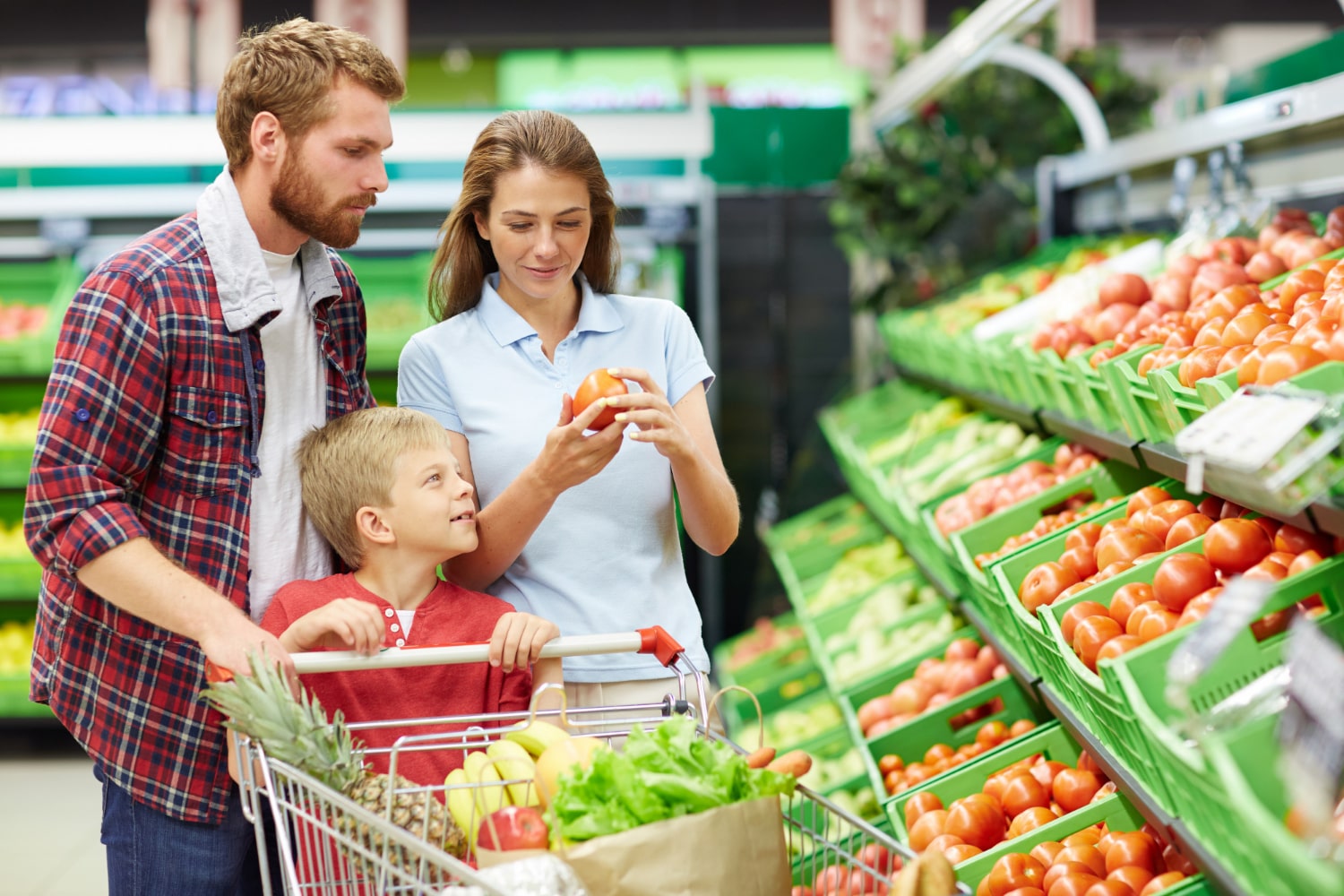
For a household of any size, you’ll spend a lot of time and money preparing your meals. That’s why it’s so important to integrate some eco-friendly habits into your grocery shopping and cooking routines.
Not only are these habits more sustainable, but they can also cut down on your weekly food budget. Here are some simple switches that can all reduce your environmental impact in the kitchen.
Buy Local
There are so many reasons that you should buy locally-grown produce when you can. In-season local produce at a farmer’s market is going to be fresher than anything you find in a traditional grocery store.
Farmer’s market purchases also support local businesses and give a higher percentage of your purchase back to farmers. At traditional grocery stores, farmers receive less than 15 cents for every dollar spent on the food that they grow. At many farmer’s markets, your money goes straight into farmers’ hands.
Another bonus to shopping locally is that your products don’t have to be shipped as far. When food comes from farther away, it’s been driven or flown over long distances. This contributes directly to soaring carbon emissions.
To scout for some deals, stop by your local farmer’s market towards the end of the day. You might just snag a deal on some produce that will go bad if vendors don’t sell it.
Plan Your Meals
Meal planning takes a lot of the guesswork out of your dinners. When you know exactly what you’re cooking for the week, you limit trips to the grocery stores, which means limiting opportunities to overbuy groceries.
While eating take-out is convenient, it’s costly, not as nutritious, and served in plastic containers. Meal planning takes some time to organize, but then your meals are easily reheated at your convenience.
If you’re still hesitant to try meal prepping, just remember that it doesn’t have to be boring! Learn to cook your favorite meals and you can keep them in your meal planning rotation.
Buy Staples in Bulk
Grains are the backbone of cooking, no matter what type of cuisine you like. Luckily, most grains can be bought in bulk and can practically live forever on your shelf in an airtight container.
Buying in bulk saves you money and reduces your grocery shopping trips because you’ll already have the basics at home.
Going wild and buying everything in bulk isn’t the best decision but if you’re buying staples like rice, you’re going to get through that bulk bag.
Some staples to look for in bulk can include sugar, flour, rice, beans, and pasta. Keep in mind that you should stick to buying bulk foods that you eat often.
Specialized zero-waste bulk stores are gaining popularity and give you an option to bring your own container. Traditional bulk buying already uses less packaging than other products. By shopping at a bulk store, you can work towards eliminating your single-use packaging consumption.
Shop Your Kitchen
What’s the top way to save money in the grocery store? It’s being able to make a meal without going to the grocery store at all. When you take inventory of what you already have on hand, you can help cut down on food waste and your grocery bill.
Shop your kitchen and pantry before doing your food shopping and take note of any perishables that are expiring soon. This is a great way to switch up your cooking and think of new ways to cook with ingredients that will go bad soon.
Can’t think of any new recipes right now? Some items can be frozen to extend their shelf life. Check if this is safe to do, then toss your ingredients in the freezer to use next time.
It can be really easy to forget about items that are sitting in the back of your fridge or pantry. Having organized food storage helps you keep track of what you have so that you’re not making unnecessary purchases.
If we work small sustainable habits into our daily routines, they add up to more long-term benefits for the environment. It’s better to make changes that you know you can stick to than to make a big change that gets abandoned after a week because it didn’t work with your lifestyle.
Eco-friendly grocery shopping is just one way that you can change your routine for the better.
For more ideas about how you can shop sustainably, check out the infographic below.

You may also like
How to Combat Perceived Obsolescence and Save Money
Simple Ways to Leading an Eco-Friendly Lifestyle
A Beginner's Guide to Zero Waste Living
Live Greener With These 4 Sustainability Tips
